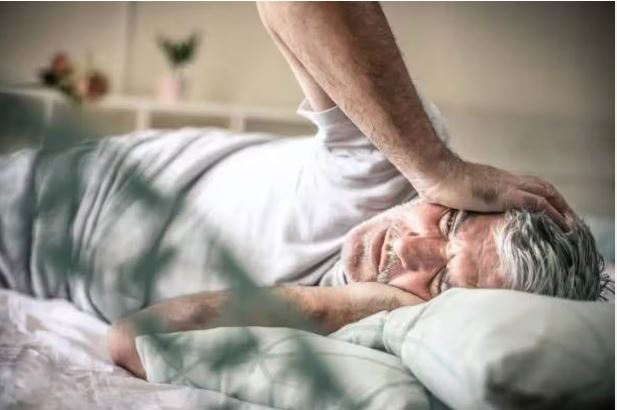


 9:45:32
9:45:32  2023-04-10
2023-04-10  875
875

A scientific warning about the danger of sleeping for long periods of time. Strokes and health problems
We are constantly being asked to get enough sleep, but scientists warn that getting too much sleep can be harmful.
Researchers at the University of Galway in Ireland analyzed data from 5,000 people, half of whom had already had a stroke. Participants who slept more than nine hours per night had double the risk of having a stroke compared to those who slept a standard seven hours.
The results also showed that people who slept less than five hours a night were three times more likely to have a stroke. The study was observational, which means it couldn't prove whether sleeping too much or too little increased the risk of having a stroke.
The Centers for Disease Control and Prevention (CDC) say everyone should get a minimum of seven hours of sleep each night.
Sleeping too long has already been linked to multiple health problems, including heart disease, diabetes and obesity.
"Our results suggest that sleep problems should be an area of focus for stroke prevention," said Christine McCarthy, a sleep scientist who led the research. "With these findings, clinicians can have early conversations with people who are having trouble sleeping."
It is not clear why excessive sleep increases the risk of stroke, but scientists have indicated that it may be a sign of other health problems.
This includes a sedentary lifestyle, anemia or depression - all of which are known to increase the risk of stroke - or an increased possibility of obesity.
On the other hand, lack of sleep is also known to increase the risk of stroke due to higher levels of blood pressure, inflammation, and an increased risk of obesity and type 2 diabetes.
In the latest study, published in the journal Neurology, the scientists analyzed data from 5,000 people who took part in the INTERSTROKE study, which followed patients and matched controls from 32 countries.
The participants were an average of 62 years old and were all asked to fill out a questionnaire about their sleep, including how many hours they got, what quality, whether they took naps, and whether they snore or had breathing problems during sleep.
The results showed that in the stroke group, 151 people slept more than nine hours.
The data also showed that in the stroke group, 162 people slept less than five hours, while in the non-stroke group, this dropped to 43.
The scientists also found that people who snore during sleep - a sign of sleep apnea - were three times more likely to suffer a stroke than those who didn't.
The data also indicated that people who snore were 91% more likely to have a stroke.
McCarthy added: "Not only do our findings suggest that individual sleep problems may increase a person's risk of having a stroke, but having more than five of these symptoms may lead to a five times greater risk of stroke compared to those without any sleep problems."
Study limitations included that all sleep data was self-reported.
The participants were not required to wear the wrist device at night for any period to record their actual sleep patterns.
Nor were they asked to provide recordings of when they breathed or snored while asleep, or to show doctors a note to prove sleep apnea.
The study was funded by the Canadian Institutes of Health Research, the nation's premier health research organization.
Reality Of Islam |
|

Labor short

A new ultra

Batteries p
 9:3:43
9:3:43
 2018-11-05
2018-11-05
10 benefits of Marriage in Islam
 7:5:22
7:5:22
 2019-04-08
2019-04-08
benefits of reciting surat yunus, hud &
 9:45:7
9:45:7
 2018-12-24
2018-12-24
advantages & disadvantages of divorce
 11:35:12
11:35:12
 2018-06-10
2018-06-10
 6:0:51
6:0:51
 2018-10-16
2018-10-16
 5:58:12
5:58:12
 2021-12-18
2021-12-18
 8:19:41
8:19:41
 2018-06-21
2018-06-21
 4:26:43
4:26:43
 2022-02-21
2022-02-21
 10:35:40
10:35:40
 2022-05-26
2022-05-26
 1:38:41
1:38:41
 2021-12-08
2021-12-08
 9:39:36
9:39:36
 2022-12-28
2022-12-28
 8:3:0
8:3:0
 2018-06-21
2018-06-21
 5:41:46
5:41:46
 2023-03-18
2023-03-18
| LATEST |